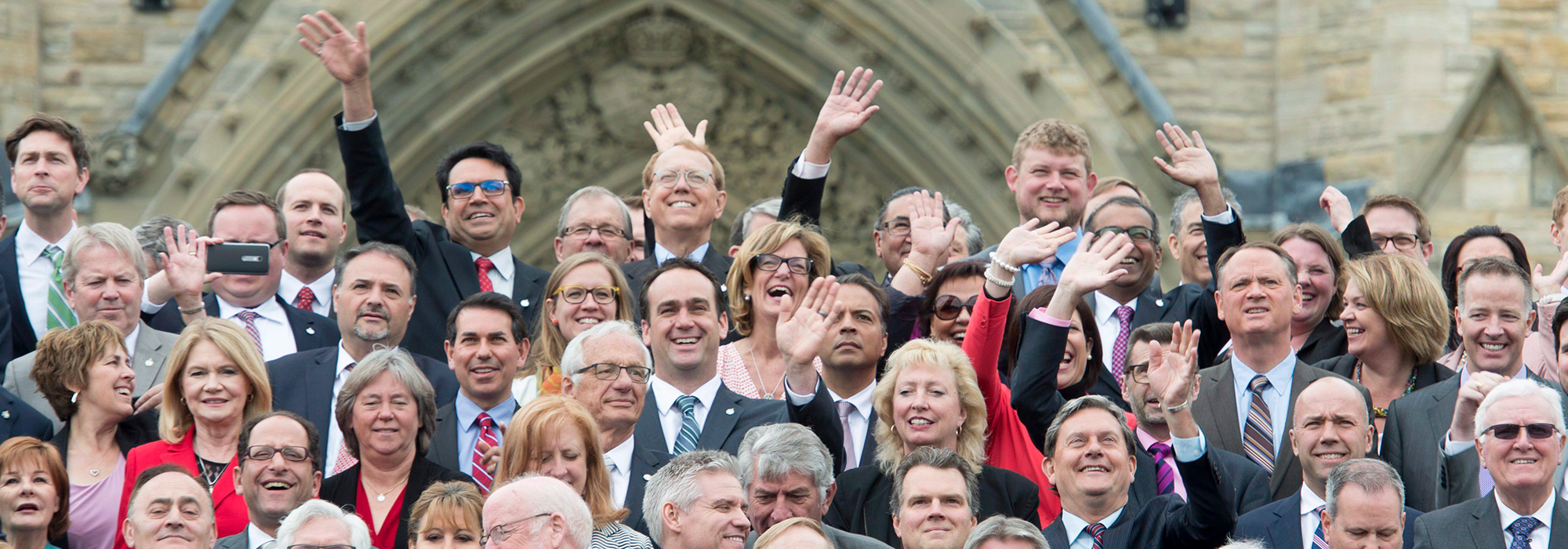
The world of work is changing for most people. For Canadian politicians, the question of how it might change is especially perplexing because it’s not obvious what they are doing right now. What are the duties and responsibilities of the people we elect to Parliament in Ottawa and to the legislatures in our provincial and territorial capitals?
As a 2012 Inter-Parliamentary Union Report examining the changing nature of parliaments around the world noted, “Being an elected politician remains one of the few professions for which there is no job description.” Here at home, a study by the Canadian think tank Samara, appropriately called Welcome to Parliament: A Job with No Description, found that even among members of Parliament themselves, there was little agreement as to their role and purpose.
This lack of a formal job description may give members the theoretical independence to hold a government in check, but it also makes them vulnerable to having their power and influence weakened. It has certainly facilitated the increasing centralization of power in prime ministers’ and premiers’ offices, the rise of powerful unelected political staff and the seemingly never-ending creation of parliamentary watchdogs who are seen as much more credible than mere politicians.
Sure, members debate and vote, do their committee work and ask questions in Question Period. But does anyone really notice? The intense spotlight on party leaders and senior cabinet ministers along with the seemingly insatiable appetite for scandal to fill up the 24-hour news cycle leaves little room for anything else. For many members, their 15 minutes of fame is more likely to be devoted to excessive expenses, a suspicious fundraiser or an ill-thought-out tweet, leading to a culture where legislators are spending ever more time on checking and worrying about even the most minute aspects of their day-to-day activities.
So, is this the future: a continuing decline into obscurity for members of Parliament as they focus on staying out of trouble? Parliamentary reform — the push to give backbenchers more significant roles — always seems to be on the horizon, but it is hard to see how strengthening committee chairs is going to radically change the working life of a member in the capital.
Powerful players in our political capitals seem to be no longer treating local politicians as their trusted eyes and ears.
It is enough to drive a politician back home, although work in the constituency has its frustrations too. The old adage that a politician’s role is to explain Ottawa (or the provincial equivalent) to their riding and explain their riding to Ottawa seems antiquated. In an age of sophisticated public opinion research and political advisers, the powerful players in our political capitals seem to be no longer treating local politicians as their trusted eyes and ears.
And how do members “explain” anything to constituents? The lack of respect for politicians, the ease with which information can be found from other sources and the disintegration of community connectedness, including a lack of local media, have made it harder to find an audience willing to listen.
But all is not lost — if politicians know where to look. Something is happening out there: an increasing disbelief that governments have all the answers and a growing distrust of the voices of the so-called elites. And although there may no longer be a deferential public willing to listen attentively to policy pronouncements coming from Ottawa, there are still moments of passion when smaller groups come together. These smaller groups are what the Canadian public theologian David Pfrimmer has called “publics”: “voluntary association[s] of individuals gathered around an idea, or purpose, or action.” Publics can take many forms, from existing service clubs, community groups or church organizations to new gatherings that form spontaneously around an idea or an initiative. Think of the Syrian refugee crisis, when we saw community groups and organizations — publics — come together on short notice to welcome and support refugee families, demonstrating a passion that seems to have been missing from Canadian politics for quite a while.
As the general population increasingly disengages and distrusts edicts from on high, these publics are going to matter more. Low voter turnout means that successful politicians no longer need to win over the majority of their constituents to get elected — success is now going to those who mobilize and sustain publics.
Maybe a new role for parliamentarians is to enlist the passionate commitments of their constituents to build and nurture these publics.
Maybe here is where the future lies for parliamentarians, because despite the lack of deference shown to them in their communities, they still retain the power to convene. Few citizens will ignore a call, visit or personal invitation from their MP or MPP. Maybe a new role for parliamentarians is to enlist the passionate commitments of their constituents to build and nurture these publics, not in an effort to “explain” government to them but instead to empower their voices and work with them to develop and implement solutions to the difficult problems facing our world.
This new role will have to be accompanied by a change of attitude on the part of government, but isn’t that change inevitable?
“It is increasingly obvious to everyone, especially citizens, that governments cannot solve the problems of a complex, fast-paced, information society like Canada…just by issuing policy directives from an office tower in Toronto, Halifax or Ottawa.” This was the conclusion that a group of public policy commentators (including me) reached in a 2007 study on progressive governance. Based on a decade of research, consultation and discussion between politicians, public servants and policy experts, we argued that governments needed to give citizens a greater and more meaningful role in setting the goals and priorities of our society and in their implementation.
Although this was a contestable position a decade ago, it is now becoming a self-evident truth. It seems likely that the only way for governments of the future to be successful is to form partnerships with these publics and more fully involve them in creating and carrying out policy. In fact, in this political climate, a political party admitting that it doesn’t have a solution to certain problems might prove a vote getter: everyone would believe it — particularly if the party promised a robust, well thought out public engagement process to address the issues, one that is undoubtedly going to involve the local member.
Politicians like to think of themselves as community leaders. Maybe that is going to change. They might have to start thinking of themselves as adventure guides or referees or coaches instead, accompanying publics in understanding the nature of our country’s problems and helping them grapple with some of the big decisions that need to be made as we navigate the challenges of the modern world. Now there are some worthwhile job descriptions!
This article is part of the The Changing Nature of Work special feature.
Do you have something to say about the article you just read? Be part of the Policy Options discussion, and send in your own submission. Here is a link on how to do it. | Souhaitez-vous réagir à cet article ? Joignez-vous aux débats d’Options politiques et soumettez-nous votre texte en suivant ces directives.







